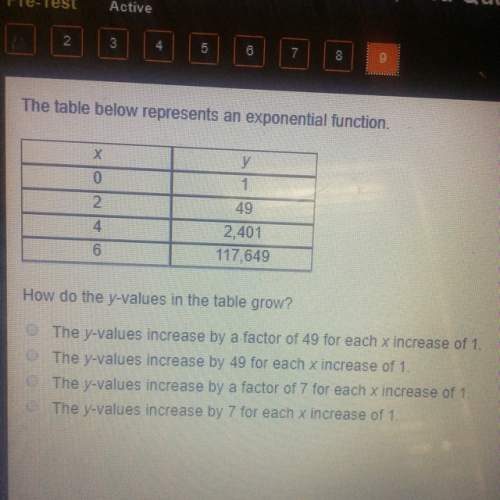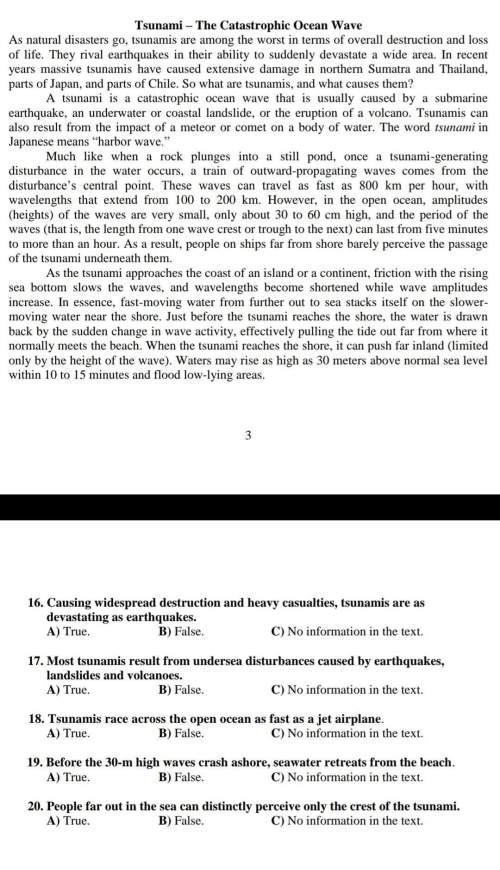A Big Year
By Bob Kowalski
Would you go to the ends of the earth to see a bird? What if...

A Big Year
By Bob Kowalski
Would you go to the ends of the earth to see a bird? What if it were a really special bird: one with beautiful feathers, an entrancing call, or a silly dance? What if seeing that one special bird would allow you to win a contest?
If that contest doesn't get you on television or win you any cash prizes, would you still do it? For those who participate in the "Big Year," the honor of beating the previous record is the only reward they get or even want.
A "Big Year" is a year in which a person attempts to see as many different species of birds as possible within a particular region. For most in North America who participate in a "Big Year," this region is the lower 48 American states, plus Alaska, Canada, and a couple of French islands off the Canadian coast.
You may be thinking that looking at birds is silly, but just think about the numbers of the recent record holders and the commitment it takes to get these numbers. One recent "Big Year" winner managed to see 744 birds in one year, missing the record by just one bird. Big Year birders travel by train, plane, boat, car, bicycle, and of course, by foot. They can cover over 150 thousand miles to get numbers of sightings this high. They can also spend a small fortune.
Just to clarify, the birds these contestants are counting are the number that they see in a particular year. You see, the contest is based on an honor system. No pictures or other evidence is required as proof of a sighting. Most birders take great pride in their reputation and their abilities to see or hear and then identify a bird. Usually, important sightings of the rare birds needed to get counts in the 700s are visited by hundreds of birders. It is pretty hard to cheat your way to a record-breaking year, but in general, few are interested in cheating.
This honesty comes from the fact that most people who want to break such a record know the greatest rewards are not necessarily in winning. Such rewards are in being able to commit a year of your life to doing something you love. Rewards are found in seeing amazing, inspiring creatures like the California Condor or the Magnificent Frigate bird. Rewards also come in spending time with people who, like you, want to spend their time looking to the skies and trees for glimpses of emerald, crimson, or cerulean blue feathered jewels.
You don't have to be able to travel a continent to have a big birding experience though. Have a big month. Or a big weekend. Set a personal record, learn to identify the species that live in your part of the world, or try to learn the calls of just two species of birds. You will soon find looking at birds isn't such a strange way to spend your time.
Extra! Extra! Backyard Birding
Many schools, families, and young birders across the country participate in the "Great Backyard Bird Count." While not as long as a "Big Year," the "Great Backyard Bird Count" happens every year. It depends on birders and families across the country to watch feeders and other areas in their yards and count the number of birds they see. Unlike the "Big Year," the goal is not to see who can count the most birds. Instead, participants in this event work together to help bird experts get a good idea of how birds are doing. Participants are given checklists and enter their sightings on a website. Called a "citizen-science" project, this event is open to anyone, requires no travel, and happens every year over one weekend in February.
THE QUESTION:
Which of the two events described would be best for a beginning birder? Use details and information from the article to explain your choice. (10 points)

Answers: 1


Other questions on the subject: English

English, 21.06.2019 20:30, Angel1107
Voluntourism: an opportunity too good to be true a speech to the student body of evergreen high [1] picture this: it's spring break, and you fly off to some country where there's lush rainforests and beautiful, blue coastlines to explore. there's also people in need, so you decide to blend your vacation with volunteering. volunteering as a tourist, or voluntourism, seems like a great way to explore new regions and people at the same time. however, this "volunteer plus travel" experience can actually harm local communities. while many teens might view traveling and volunteering abroad as a worthwhile adventure, there are more genuine and effective ways to make a difference. [2] most would agree that volunteering in general is a worthy use of time. however, what if you found out the children you are "" are actually being kept in poor conditions so voluntourists will spend money to come to the local area? dale rolfe, a supporter of ethical voluntourism, explains the shocking reality that "animal sanctuaries and orphanages are often manufactured for the voluntourist…encouraging a cycle of exploiting the very animals and children the volunteers are trying to ." [3] proponents of the "volunteer plus travel" experience also argue that traveling to new places builds character and is a valuable way to learn about different cultures. with voluntourism, however, participants often pursue experiences that are all about them. for example, they sign up to build a school for a gold star on their resume, but they have no real building skills and take jobs away from local construction workers (schulten). or, they arrive to teach english but instead take selfies with the locals. one world traveler and ethical voluntourist believes voluntourism "can perpetuate small minded views of the world by taking insulated, fake, and structured experiences and selling them as unabridged and eye opening" (carlos). the voluntour experience is a mirage. the voluntourist's eyes are not opened to real life at the destination, and lasting change is not achieved. [4] if you want a genuine experience where you can see a lasting impact, there are better options than voluntourism. you can volunteer in your local community. give an hour every week to your town's animal rescue. serve monthly dinners to the homeless. be a reliable, positive influence on a child who needs a mentor. studies show that volunteering and forming lasting relationships with those you has a positive impact on your physical and emotional health. in fact, blood pressure is reduced, memory is improved, and rates of depression are reduced (michaels). [5] there is another reason to look into alternatives to voluntourism. did you know the average "voluntour" travel package costs $3,400 (rolfe)? could that travel money be better spent? if the world's citizens are your passion, it could go to an international organization. if you care about education, your funds can be used to buy books for students in faraway lands. if you want villagers to have clean water, contribute funds to local efforts to dig wells. if you want to experience a different culture, travel to the country as a guest, and learn from the locals how you can best them after you've returned home. but do not voluntour. [6] in reality, there are better ways to make a difference. voluntourism might appear to be an adventure that blends travel and others, but it does little except provide a costly, superficial experience that might actually do more harm than good. so, volunteer where you are most needed-at home, where you can stay to see the job through and form genuine, lasting relationships. choose a beautiful coastline closer to home and send the travel money you saved to an international organization that will put it to good use. whatever you do, don't turn someone else's hardship into your vacation. which paragraphs address the counterclaim of the argument? paragraphs 1 and 6 paragraphs 2 and 3 paragraphs 3 and 4 paragraphs 4 and 5
Answers: 3


English, 22.06.2019 02:30, Syaralopez
Which part of the story shows how kiara and tanya's differences affect their friendship? kiara and tanya were the best of friends. when they were 10 years old, they always went everywhere together. all their friends knew that if they found one of them, they would find the other. anyone who didn't know them thought that they were twins because both kiara and tanya had long, silky red hair and pale complexions. they were even similar in height and build. they were more like sisters than friends. but as similar as they were in appearance, they were just as different when it came to their personalities. this difference didn't affect their friendship, at least not for a long time. kiara always got out and participated in activities and competitions. tanya was happiest when reading a book at home. kiara was outgoing and talkative. tanya was quiet and shy. kiara was popular, and people were drawn to her because of her ability to make quick friends. tanya hardly had any friends besides kiara. as they grew older, kiara managed to make a large group of friends. tanya, on the other hand, still remained shy and reserved. this difference in their personalities eventually caused a rift between the two friends. tanya would refuse invitations to parties and movies that kiara invited her to. she just didn't want to hang out with people she didn't know that well. kiara couldn't understand why. she thought tanya disliked her friends. eventually, kiara and tanya both realized that they had outgrown one another. they still remained friends, but they were not as close as they once had been.
Answers: 1

English, 22.06.2019 04:30, LemonCT
Armed with invisible ink, a cipher system, and a passion to end the war and preserve the union, elizabeth van lew became butler's eyes and ears in the confederate capital city. truth be told, however, she became much more than that. she became a spymaster, the person responsible for running a network of agents, couriers, and safe houses that was very active during the war. in addition to the spying, elizabeth van lew continued to maintain her church hill home as a safe house and something of a local union spy headquarters. —the dark game, paul janeczko what is the central idea of this passage? van lew’s home was used as a safe house, which was critical to the confederacy. van lew had a passion to end the war and preserve the union. van lew was a spymaster, a leading force in the espionage activities for the union. van lew did not enjoy working for general butler.
Answers: 1
You know the right answer?
Questions in other subjects:


Social Studies, 04.02.2021 19:50

Business, 04.02.2021 19:50


English, 04.02.2021 19:50

Mathematics, 04.02.2021 19:50

Mathematics, 04.02.2021 19:50


Mathematics, 04.02.2021 19:50

Mathematics, 04.02.2021 19:50





